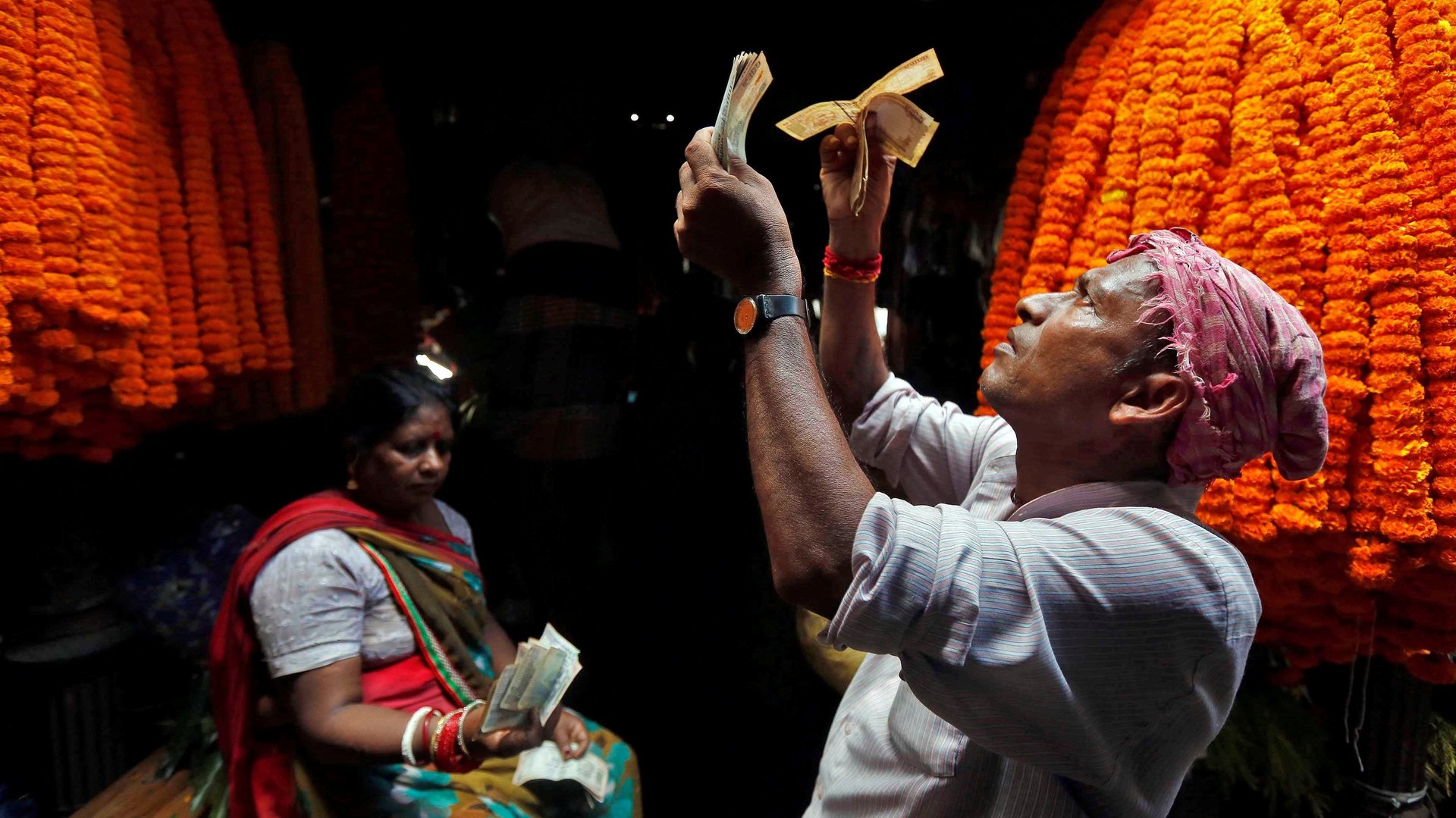What Indians think of demonetisation, three years after the jolt
On Nov. 8, 2016, India’s prime minister Narendra Modi unexpectedly announced the demise of the Rs500 and Rs1,000 currency notes. With around 86% of the currency in circulation (by value) pulled out of the system, ostensibly to fight corruption and terrorism, the next several weeks were chaotic for Indians. The note ban shaved off over 2% from the country’s economic activity between November and December 2016.


On Nov. 8, 2016, India’s prime minister Narendra Modi unexpectedly announced the demise of the Rs500 and Rs1,000 currency notes. With around 86% of the currency in circulation (by value) pulled out of the system, ostensibly to fight corruption and terrorism, the next several weeks were chaotic for Indians. The note ban shaved off over 2% from the country’s economic activity between November and December 2016.
Three years on, India is yet to recover from the disastrous policy move that did nothing to fix the black money problem.
Over a third of Indians think the biggest negative impact of demonetisation was the economic slowdown, a survey by community social media platform LocalCircles has found.
The survey received over 50,000 responses from 30,000 citizens from over 220 Indian districts.
Researchers at Bengaluru-based Azim Premji University pegged the number of job losses caused by demonetisation at five million between 2016 and 2018. From Punjab’s factory workers to weavers in Tamil Nadu, unskilled labourers across India suffered. Contractual service providers like maids, cooks, drivers, and nannies, who are often paid in cash, went without salaries for weeks. Not surprisingly, the loss of earnings for unorganised sector workers was a close second on the list.
A quarter of Indians believe there was no real benefit from the drastic move. However, over four in 10 do agree it brought a large number of evaders in the tax net, LocalCircles found.
“An important goal of demonetisation was to reduce the use of cash in transactions and encourage…non-cash modes, but the use of cash in the Indian economy does not seem to be reducing,” LocalCircles noted. Digital payments have picked up, but a third of Indians still pay for groceries and salaries of domestic staff in cash.
Even when making a large transaction like purchasing property, nearly six in 10 paid between 25% and 50% in cash.
Under these circumstances, how can the government eliminate black money further?
Topping the list of solutions is making disclosure of assets of people with political power—and their families—mandatory. Make linking of all property-ownership to Aadhaar, too, compulsory.
The disgruntlement aside, over 10% of those surveyed called for another demonetisation, saying the Rs2,000 notes should immediately be pulled.